




































































COPUBLISHER/ EXECUTIVE EDITOR


Cathy Resmer cathy@kidsvt.com
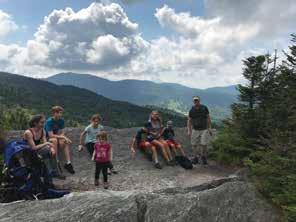
COPUBLISHER
Colby Roberts colby@kidsvt.com
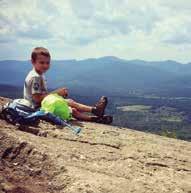

MANAGING EDITOR
Alison Novak alison@kidsvt.com
STAFF WRITER/ CALENDAR WRITER
Brett Ann Stanciu brett@kidsvt.com
ART DIRECTOR
Kirsten Thompson
MARKETING & EVENTS DIRECTOR

Corey Grenier corey@kidsvt.com


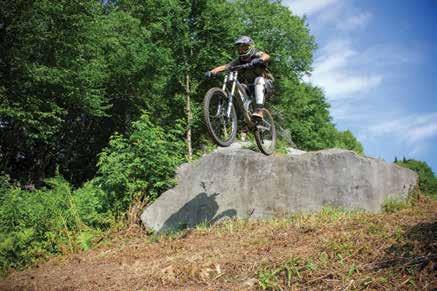
ACCOUNT EXECUTIVE
Kaitlin Montgomery kaitlin@kidsvt.com
PROOFREADERS
Carolyn Fox, Katherine Isaacs
PRODUCTION MANAGER
John James
CREATIVE DIRECTOR
Don Eggert
DESIGNERS
John James, Rev. Diane Sullivan
CIRCULATION MANAGER
Matt Weiner
BUSINESS MANAGER
Marcy Carton
CONTRIBUTING WRITERS
Keegan Albaugh, Meredith Bay-Tyack, Christianna Cecere, Heather Fitzgerald, Astrid Hedbor Lague, Elisa Järnefelt, Kathleen Kesson, Ken Picard, Trish Van Vliet
PHOTOGRAPHERS
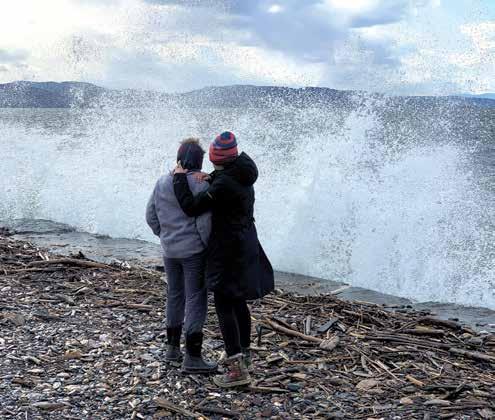
Andy Brumbaugh, Cat Cutillo
ILLUSTRATOR
Marc Nadel
As parents, we want to protect our children. It’s not just our job; it’s our instinct. When they are babies, protecting them is not always easy, but it is straightforward. We feed them when they are hungry. We change their diapers when they are wet. We run to them in the night when they cry out, cradling them and stroking their soft heads until they return to peaceful sleep.
But as our children grow older, protecting them becomes more complicated. As they begin to understand that there is injustice and pain in the world, we must make decisions about what to shield them from and what to tell them. We must protect them while also educating them about some hard truths.
That tension became all the more apparent in May, as the U.S. death toll from the COVID-19 pandemic surpassed 100,000 and protests broke out throughout the country following the police killing of George Floyd in Minneapolis.
I sat on the couch with my 10- and 13-year-olds after they heard a news report about George Floyd’s death, explaining to them the details of what had happened. As they sobbed, I held them and stroked their heads. I told them that I loved them, but I couldn’t assure them that everything would be all right.
The stakes are far higher for parents of color, who must tell their children about the senseless deaths of people who look like them at the hands of police. For the parents of Atatiana Je erson, Ahmaud Arbery, Breonna Taylor, George Floyd and far too many others, no amount of motherly or fatherly love was enough to keep them safe. As a white person, I can’t pretend to understand the fear, indignation and anger they feel.

This summer will be di erent than any other we’ve experienced. With events and many summer programs canceled, there will be more time than ever to spend with our children. My family will use this time to explore our beautiful state, to take hikes and eat creemees and swim in lakes. But we’ll also use it to talk about the systemic racism and injustice that exist in our country, and to find productive ways to be allies in the fight for a more just world.
The cover image of this issue, taken by Cat Cutillo on the bike path in Burlington, resonated so deeply with me because it feels symbolic of our world right now. We are in a bleak place, and there is so much uncertainty about what the future holds. Yet still we roll on, wobbly and uncertain, arms outstretched, with hope for a better tomorrow. That future is only possible if we work to counter those who espouse bigotry and hate. Let’s keep on moving toward the light.
ALISON NOVAK, MANAGING EDITOR
Chickering Bog in Calais is a short walk through a wooded area which opens into a stunning bog. My daughters have always loved lying on the floating boardwalk, listening to birdsong and admiring the reflection of the sky in the water.
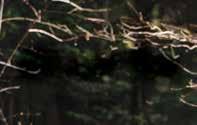
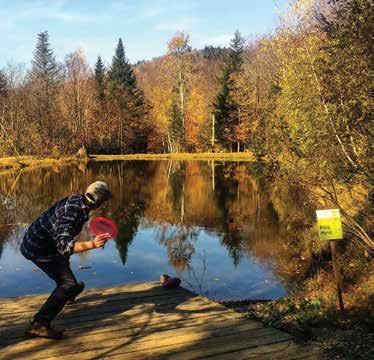
I love the Worcester Range — Worcester, Hunger, Elmore. They have some challenging bits, but the payo is great at the top!

I also love Stowe Pinnacle — not only is the meadow trail full of butterflies, but if you are lucky, you could be joined by the pair of golden retrievers who are uno cial mascots of the trail! They tend to hike up with folks first thing in the morning, and then hang out with people at the top before heading home for the day!
We love the Ethan Allen Homestead riverside loop trail for an energy walk and a mix of wide open space, river and woods. It’s the right level for both our 3-yearold and 7-year-old and has some great spots for a picnic lunch afterward.
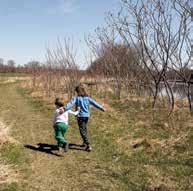
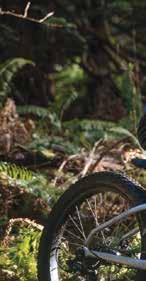
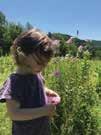

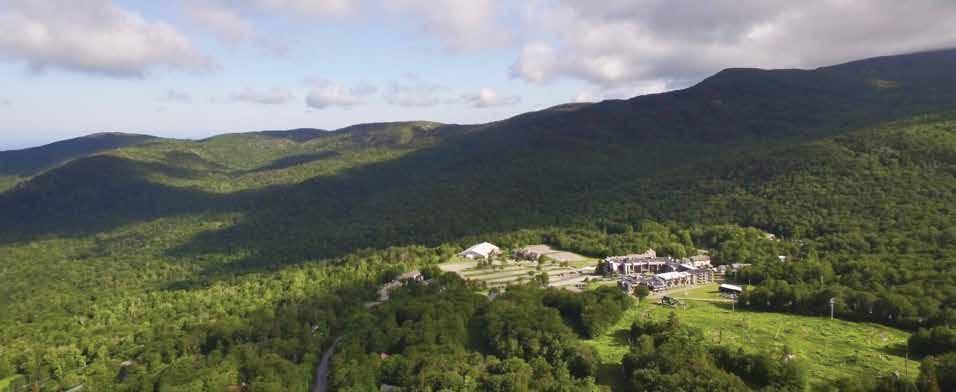
TRISH VAN VLIET
(“Do It at Home,” page 15) is a writer, third-grade teacher, and terrible but enthusiastic dancer. She lives in Shelburne with her blended family and two demanding cats, a snake, two gerbils, two rats, a bearded dragon and a kooky rescue terrier named Dwight K. Schrute III.

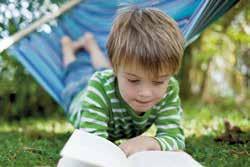
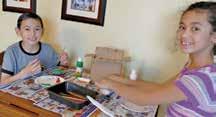










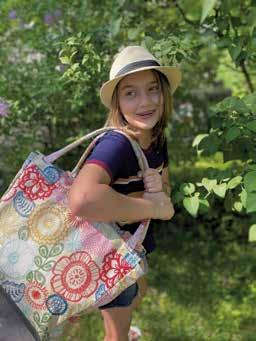
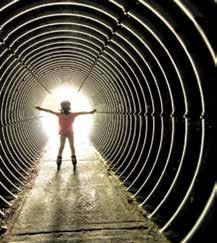


Vermont brothers
Chris and Martin Kratt
— of PBS Kids’ “Wild Kratts” fame — recently launched a fundraising initiative to create a wildlife refuge for threatened animals. Way to go, bros.

Despite school buildings being closed, young people all over the state have continued to express themselves creatively. This month, local educators shared some of their students’ impressive work.
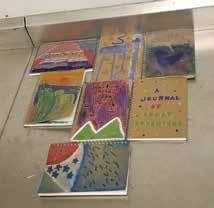



Winooski Middle School art teacher Emily Jacobs used the online platform Exhibbit to create a virtual exhibition featuring more than 120 works of student art. Exhibbit is often used by professional artists and museums, who pay monthly to display their work. The company donated most of the virtual space for 30 days after Jacobs reached out to them. “Given that in-person gatherings are not an option right now, I wanted to utilize an online platform that would most closely mimic the aesthetic and flow of moving through a professional gallery space,” explained Jacobs.
The University of Vermont and Saint Michael’s College announced permanent closure of their childcare centers due to money woes. A huge loss for young kids and their parents.
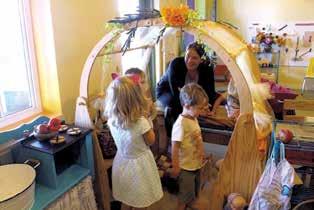
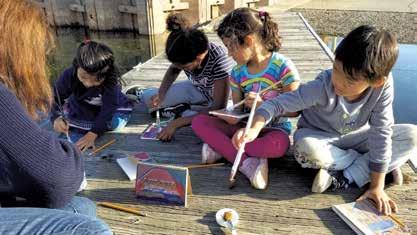
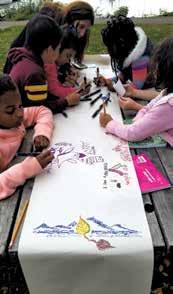
Judy Klima, art teacher at Edmunds Middle School in Burlington, shared some of her students' pandemic-related art. As part of a photography project, students took self-portraits with items that gave them comfort and represented the current moment, taking inspiration from the work of professional photographer Gregg Segal. Klima also asked students to visually respond to questions including, “Can science be beautiful?” and “Can times like these o er us powerful lessons?”
Students in Burlington High School’s City & Lake Semester
class collaborated with Burlington-based artist Mary Lacy to create “Window of Hope,” an exhibit documenting students’ experiences and emotions through the pandemic. “Making art is a powerful way of documenting an experience and telling a story. It is a way of remembering,” said Lacy. “My hope is that this collective project can serve as a time-capsule representation of what the quarantine was like for students in our community.”
Last summer, poet and educator JC Wayne began working with a small group of elementary school kids at King Street Center in Burlington. Wayne, the creator of the Poartry Project (poartry.org), and the group of students went for nature walks along Lake Champlain — with journals and art supplies in tow — engaging their observational and listening skills, and creating art and poetry together.
When the 2019-20 school year began, she started meeting weekly with a new group of students who attended King Street’s afterschool program.

“What JC is able to do is beautifully connect kids with nature,” said King Street community outreach director Gabriela Tufo-Strouse Wayne uses drawing and storytelling to help kids express themselves, Tufo-Strouse continued, and makes poetry “easy” by demonstrating how words can be arranged to create a poem.
Wayne called her afterschool group the Superhero 6 and wrote a story inspired by them, in which she identified each of their superpowers.
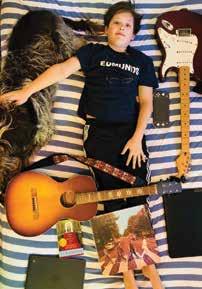
The Sunset Drive-In in Colchester is open nightly with movie options for families.
BYO Sno-Caps.“Once there was a special place in a special city by a special lake,” the story begins. “What was this place? It was where superheroes went to grow — though many of them didn’t know they were superheroes yet.”
J.K. Rowling published a new fairy tale, The Ickabog, in installments on her website. “THIS IS NOT A HARRY POTTER SPIN-OFF,” she warned eager Potterheads on Twitter.
• Increases flexibility in the ankles and hips
• Strengthens the legs and feet
• Cultivates focus and feelings of being grounded

• Feels great!
STEPS:
1. Bring your feet hip-distance apart in mountain pose.
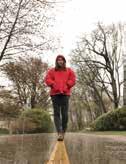
2. Bend your knees deeply and lower your hips toward the Earth in a squatting position.
3. Bring your hands down in front of you.
4. Try balancing on your toes while in frog pose!
HAVE FUN!
Hop from lily pad to lily pad or over a yoga mat or large scarf, pausing in your frog pose squat between each jump. Read and act out a frog story, for example Croaky Pokey by Ethan Long
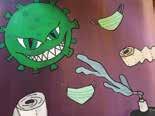

Though the King Street Center temporarily closed in March to help slow the spread of COVID-19, that didn’t stop Wayne and her group from meeting. They turned to Zoom to facilitate their gatherings. Before one session, Wayne hid drawings of bunnies with words written on their backs all around her property. The group took a virtual walk to find them, then created a poem together.
Said Wayne of the online meetings: “Our hope is that we’ll continue this until we can get together in person.”
Poetry is “really having a moment” right now, continued Wayne, who has been hosting poetry readings and “nature walk-alongs” through the Poartry Project since the spring of 2019.
It’s an art form that provides a sense of comfort for many people, it’s highly experimental and it doesn’t require proper grammar or punctuation, she explained. “It’s the ultimate open canvas.”
—ALISON NOVAK
MAY 26, 2020
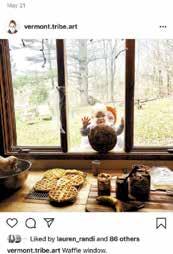

Teresa Davis recently hired Lyndsy Blais, founder of the now-closed Wildflowers Studio, as assistant director of the Davis Studio. Starting in the fall, Blais will also serve as a classroom teacher for the new multiage kindergarten and first-grade classroom at Davis Community School.

“It means that the whole heart and soul of Wildflowers gets kept alive,” said Davis, “and that’s actually very important to me.”
(The last poem we wrote together in person before the pandemic)
“Rock Our World” Rocks are cool + wet, wet + warm.
Smooth + hardwhat makes them stick together?
Must be a galaxy where huge branches are light like air and wood looks like rocks. The rock draws me, and I draw my heart as the sea glass draws to a girl in blue, hearing her call.

HERE’S HOW: y Follow @kids_vt
x Post your photos
Tag us on Instagram!
Creating eco-friendly household supplies

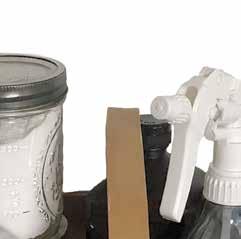
The things we do to live in a more Earth-friendly way can be both big and small. Buying energye cient light bulbs, doing a home energy audit, and driving a hybrid or electric car are out of reach for kids. But even small changes give young people the opportunity to learn that leading a greener lifestyle is a choice — and that little things can add up to make a big di erence.
Making do-it-yourself household supplies with simple ingredients is an easy way to create a more eco-friendly home. Not only does it save money and time, but kids can help every step of the way. Simple cleaners are nontoxic and, therefore, safe for kids to be around. And using reusable cloths and wipes helps cut back on waste. Below, find a few simple products you can make that will put you on the path to a greener lifestyle.
Making your own all-purpose spray cleaner is more ecofriendly than purchasing plastic bottles of cleaner from the store. I try to buy ingredients in the largest containers I can a ord and store them so that the overall product-to-packaging ratio is lower. Another benefit: When you make your own cleaners, you can customize them to meet your needs.
When cleaning most things, I start with water. Pouring water on a carpet stain and dabbing with a cloth works a surprising amount of the time. If you spill berries on a white shirt, pour hot water through it and watch the stain disappear — no specialty stain remover needed.
In all of my cleaning recipes, I start with distilled water or water that has been boiled and cooled. Tap water can contain tiny microbes that make your mixes murky if left in the bottle too long.

My basic all-purpose cleaner starts with two multiuse superstars:
• PH NEUTRAL DISH SOAP (I like Sal Suds by Dr. Bronner’s, but Dawn or other classic soaps also work.)
WHITE VINEGAR

For extra cleaning power, and to make the smell more appealing, add citrus peels to the vinegar, then let it sit in a jar in the fridge for one to two weeks before straining
I also add a sprig of one of those herbs to the vinegar. So fancy — but also so simple. My favorite containers to reuse for house cleaners are glass apple-cider vinegar bottles. Most spray triggers screw perfectly onto the top. The first time I discovered this, my mind was blown. You can reuse spray tops from other cleaners or buy tops new. If you reuse, make sure you clean them well so you’re not accidentally mixing things that shouldn’t go together.
I typically add equal parts vinegar and distilled water and a tablespoon or less of soap. Give it a gentle shake, and you’re done! Experiment with your own ratios.
Lots of great DIY cleaning supply recipes have few ingredients.
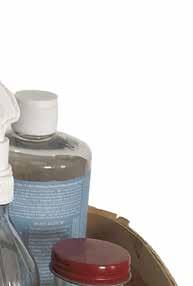
Castile soap is a great multiuse ingredient, but don’t mix with vinegar or it will curdle. Castile soap is gentle on the Earth and in your home. We use it for cleaning everything from toys to sticky hands. I also include baking soda, borax, hydrogen peroxide and rubbing alcohol in my cleaning arsenal. A sprinkle of baking soda followed by a spray of all-purpose cleaner is an amazing combination for cleaning tubs and sinks.
Two teaspoons of borax and four cups of water also makes a simple all-purpose cleaner.
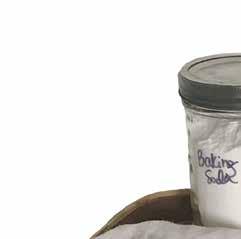 CULTURE BY KEEGAN ALBAUGH
CULTURE BY KEEGAN ALBAUGH

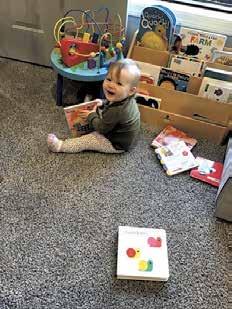
Two and a half months into the COVID-19 pandemic, my family of four has adapted fairly well to living, working and playing pretty much exclusively at home. My nearly 4-yearold daughter, Coraline, has become quite the Zoom aficionado. My 19-month-old daughter, Penelope, is consistently one step ahead of the rest of us, handing out water bottles and jackets to everyone as soon as the word “outside” is mentioned. My partner, Stephanie, has grown used to recording improv shows for the Vermont Comedy Club from our basement. I’ve established a network of close father friends who have been connecting daily to talk about everything from nacho preferences to relationships with our partners and parents.
conflicting feelings, including fear, anxiety, hope, optimism, sadness, guilt and relief.
Reusable Towels
After I spray down counters, stove tops, floors or whatever needs to be cleaned, it all gets wiped up with a reusable cloth. Stash a large bag or bin in your kitchen or bathroom to collect used cleaning cloths.
Before tossing used cloths in the bag, hang them to dry over the oven door, or on a hook or nail. This will prevent mold and mildew.

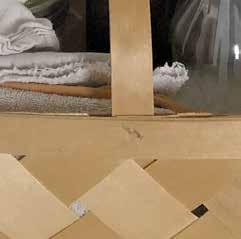
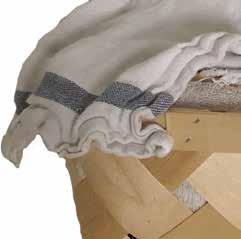
Several years ago, I made a set of “un-paper towels” from a torn flannel sheet. I cut the sheet into imperfect squares, then sewed a quick hem. It was an experiment, but my family ended up never buying paper towels again. I have found that cloth is more absorbent and e ective at tackling messes than paper. T-shirts can also be cut up to make cleaning cloths. A pair of sharp scissors is all you need; no sewing required.
Reusable Wipes
For many parents, wipes are a necessity for cleaning hands, faces or messes on surfaces — even when you’re past the diapering stage. It’s actually pretty easy to make your own. Cut cotton or flannel cloth into 8-by-8-inch squares, and stash in a tissue box for at-home use. They can be used dry, or wet them with a simple mixture of distilled water and a small squeeze of castile soap. When you’re on the go, pack the cloth squares along with a small spray bottle filled with the soap-water mixture in a small bag.
LEARN MORE:
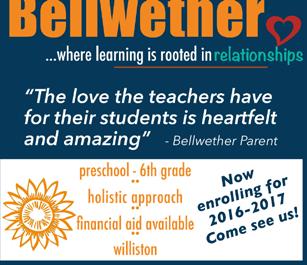
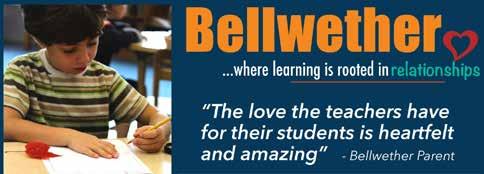
• Read Six Weeks to Zero Waste by Kate Arnell, a step-by-step introduction to reducing your waste, including a chapter on home cleaning.
• Read A Zero Waste Life by Anita Vandyke, a resource book with DIY recipes for everything from house cleaner to face wash and deodorant.
• Visit the website goingzerowaste.com, which has a section devoted to all-natural cleaning.
It feels weird to say it, but there are aspects of the stay-at-home order that I’ve really come to enjoy. I recognize the tremendous level of privilege I have to be able to make such a statement, as millions of people are really struggling. But it’s true: I have found a level of comfort and peace with myself and family during these times.
This month, that changes.
On June 1, childcare centers in Vermont were allowed to reopen after being closed for two and a half months to help prevent the spread of the coronavirus — as long as they abide by a long list of state-mandated guidelines. Although not all centers are opening in June, the order signals that returning to our family’s prepandemic arrangement — both parents working outside the home and both kids in childcare — is on the horizon.

And I’m experiencing a lot of
Like many people during this pandemic, I’ve had di culty at times finding the balance between facts and fear. On one hand, our Department of Health recently announced that Vermont has one of the lowest growth rates of COVID-19 in the country, and the state has given the green light to continue reopening businesses and communities. On the other hand, I’ve heard stories about childcare centers that have experienced COVID19 outbreaks, as well as the troubling news from our neighboring state of New York that a small number of children have become severely ill and even died from a COVID-19-related inflammatory syndrome.
When you’re responsible for the life of another human being, the line between facts and fear can be a di cult one to walk — especially when there is uncertainty around the facts themselves. My daughter Coraline misses her school so much. She gets extremely excited for her classroom Zoom meetings, where she has the opportunity to share, sing and connect with her teachers and friends. I really cannot wait for the day she can hug and play with these people once again. But, like many other parents, I want to ensure that the reopenings are happening in safe, well-planned ways. And the 13-page set of guidelines for childcare programs reopening provided by the Department of Health, the Agency of Education, and the Department for Children and Families have left me with a lot of concerns.
Childcare workers, the unsung heroes of our world, are being asked to do a lot under these new guidelines. I appreciate the e orts and intentions of making the reopening of schools as safe as possible, but I question how all centers will be able to follow these new guidelines, when most centers’ resources are already fairly limited.
I’m concerned that the quality of educational programming, particularly as it relates to social-emotional learning, will greatly su er in many centers trying to adhere to all of the new guidelines, and I worry about the impact that may have on children.


I’m concerned that a lot of centers, many of which are already strapped for cash, may not be able to stay afloat financially as the state’s childcare stabilization program comes to an end, and that families choosing to unenroll may result in lost income for centers.
I’m concerned about the ability of centers to keep up with the demand for personal protective equipment, as well as their ability, both logistically and financially, to acquire more as the weeks progress.
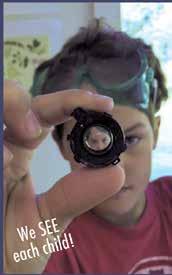
I’m concerned about the equity of the whole situation. If staffing limitations prevent centers from opening at


full capacity, how is it decided who can attend and who cannot? Depending on their incomes and occupations, some parents will be forced to send their children back to childcare, even if they aren’t ready to make such a decision. Families who can afford to keep their children at home are not forced to make that choice.
I’m concerned about the strains we’re placing on our state’s early childhood educators. These individuals already work tirelessly to take care of our children, and now we’re placing even more responsibilities on their shoulders. In fact, hundreds of early childhood educators from across the state have already signed a letter to Gov. Phil Scott through the website Action Network, addressing their concerns and discomfort with the current plan.
One of the main themes I’ve noticed from the past two months is uncertainty, and I feel I’ve been able to manage it pretty well so far. But when that uncertainty involves the safety and well-being of not only my own children, but all young people across the state, I’m left with a lot of concerns, questions and fear.
Stephanie and I are unsure about our own next steps. We recognize that our children will inevitably need to return to school, and we have seen friends struggle with the decision and ultimately decide they have no other choice. We plan on maintaining the status quo for the foreseeable future. I just hope that, when the time comes, most of our concerns will have been addressed, so that we can drop our loved ones o with more love than worry in our hearts.
Using nets and ice cube trays to investigate what fish eat
After a long, cold spring of staying home, the sun’s warmth feels glorious these days. I’ve been wondering if the trails are going to feel especially crowded this summer. I am thinking that getting out on — or in — the water might be the way to go.
I met, virtually, with Saint Michael’s College biologist Declan McCabe to ask him for advice about how to inject some ecological thinking into time on the water. He o ered a wealth of suggestions, all centering on one seemingly simple question: What do fish eat?
Ihave often said that being a Vermonter has made me appreciate the seasons more. Months of cold and snow, followed by mud season, make the lilac blooms of late spring and the glory of summer all the sweeter. So why not celebrate the beautiful weather with some delicious frozen treats?
Sure, we have maple creemees and Ben & Jerry’s in Vermont. But sometimes it’s fun to spice it up with more global flavors.
Kulfi is an Indian treat, traditionally made by cooking milk and sugar down slowly to caramelize it, then adding spices and sometimes fruit purées. I have taken a no-cook shortcut for this recipe, which makes it easy to whip up on a hot day. Instead of heating up the kitchen by cooking down milk on the stove, I used sweetened condensed milk.
Kulfi is denser and creamier than ice cream, and you can add a myriad of things to customize it. I made a mango variety with saffron and cardamom, studded with pistachios. Try it with vanilla extract, rose water or another fruit. Play with spices and have fun.
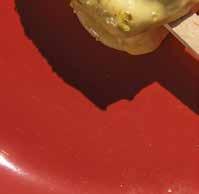
Freeze in popsicle molds if you have them, or in small paper cups if you don’t. I dusted the outside of my pops with extra pistachios and mango powder (made by pulverizing freezedried mangoes from Trader Joe’s in a blender) for a little extra kick.
These popsicles are the perfect refreshing dessert after a dinner of grilled tandoori chicken. Chances are you’re not traveling much this summer, so take your taste buds on a trip to India instead.
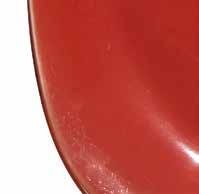
MANGO KULFI POPSICLES
(Makes about 16)
INGREDIENTS:
• 1/4 teaspoon saffron threads


• 2 cups heavy whipping cream
• 3 cups mango chunks (frozen or fresh)
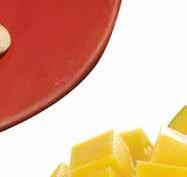
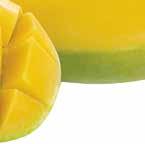
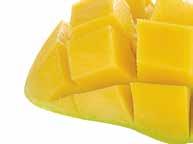

• 1 14-ounce can sweetened condensed milk

• 1 teaspoon ground cardamom

• 1/2 cup finely chopped pistachios
OPTIONAL TOPPINGS
• 1/4 cup chopped pistachios

• 1/4 cup powdered freeze-dried mango

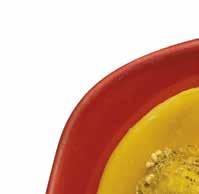
few minutes so that it blooms — making the cream a vibrant yellow color and releasing the flavor of the saffron. Purée mango, saffron-infused cream, sweetened condensed milk and cardamom in a blender until smooth. Stir in pistachios.
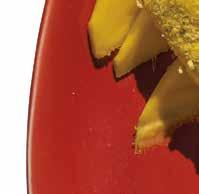
2. Pour mixture into molds and freeze until set (at least 6 hours, but preferably overnight).

3. Take pops out of mold by running under cool water until loose. Sprinkle pops with extra pistachios and freeze-dried mango powder if desired.

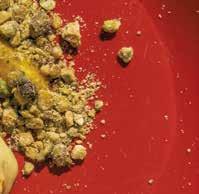
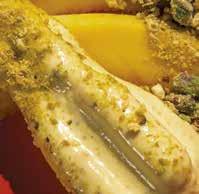

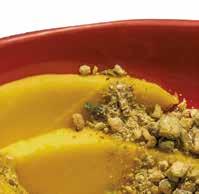
Worms, right? Well, if you paused to consider it for a moment, you wouldn’t be very successful trying to find worms for bait in streams or rivers, so no, not usually. If you collect water samples, you’ll find creatures that fish actually eat: aquatic invertebrates.

For outings with kids, McCabe favors going to small streams that are about ankle-deep, because it’s easy and safe to get to the water. He encourages exploring the water using items that you are likely to have lying around the house.
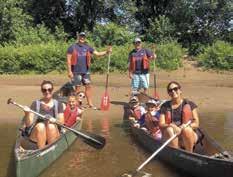
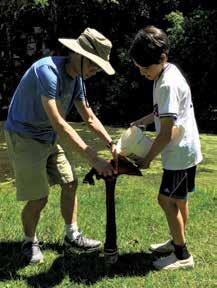
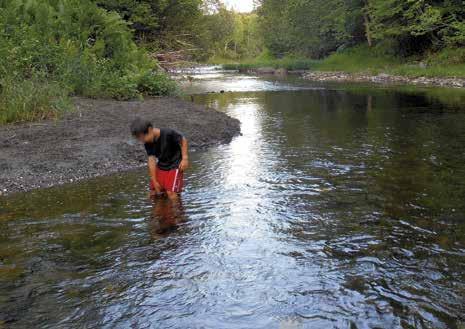
Start by filling a bucket with stream water. Pull out some rocks from the bottom of the stream and put them in the bucket. Any kind of lump on the rock is likely a living organism. Tweezers are useful for picking things o rocks, and a magnifying glass is nice to have if you find something interesting.
To find bigger organisms, get a highquality net at a pet store. Take a “kick sample,” which, said McCabe, “sounds science-y, but it just entails kicking the bottom of the stream to disturb things.”
Stomp around or dig in the sediment
a tangle of tiny rocks or sticks is likely a caddisfly which turns into a little mothlike creature as an adult.
• Round, flat insects are water penny beetles
• Something with two obvious tails is probably a stonefly
• Something with three tails is probably a mayfly
He’s quick to point out that it doesn’t really matter whether you know each creature’s name. You can tell a lot about the water you’re in just by counting how many organisms you find. If there are many di erent types of aquatic invertebrates, it is probably a clean stream. If you only find a few types, it probably has more sediment, more pollution and/or less oxygen.
Ponds are harder to get in and out of, and deeper, but they host a di erent suite of aquatic invertebrates. If you have a dock, you can sample safely from there. Use a store-bought net or make your own plankton net: Cut one foot out of a pair of tights or pantyhose, and secure a plastic peanut butter jar (or something similar) to the resulting hole with rubber bands. Hold the waist open with a coat hanger. Pour a bucket of water through your homemade net. The tights will act as a sieve, and you’ll likely find water fleas. You might also see diving beetles, giant water bugs or water mites, which McCabe likened to “red Sonic hedgehogs.”
As you’re heading out to sample your local waters, consider adding a literary element with perhaps the only book of poetry about aquatic macroinvertebrates out there: the Caldecott Honor Book Song of the Water Boatman and Other Pond Poems, written by Joyce Sidman and illustrated by Beckie Prange.
with your foot, a little upstream, and organisms will flow into your net.

Another “cool piece of science equipment,” said McCabe, is an ice cube tray: “Fill it with stream water, put a little critter in each hole and make a bug zoo. Keep it in the shade for half an hour or so, then let everybody go.”
“If you have competitive kids, you can get two ice cube trays and see who wins,” he added.
Here’s McCabe’s quick guide to what you’re likely to find:
• Anything that makes a little home from
McCabe noted that giant water bugs are good ones to celebrate in honor of Father’s Day. In one species found in Vermont, the male carries eggs on its back. In another species, the male takes care of the eggs above the water line by protecting them from predators and watering them to keep them moist.
In addition to microorganisms, fish rely on a rather surprising food source, indirectly. The base of the food web in New England streams (and some ponds) is actually fallen leaves. In winter, aquatic invertebrates fatten up on these leaves. You can read more about this and find surprising answers to other nature questions in a wonderful Northern Woodlands column called “The Outside Story” at northernwoodlands.org/outside_story/ archive.
When you’re on the water this summer — whether you’re looking down from above in a boat or doing kick samples in muck boots — pause to consider the tiny invertebrates (and the leaves they eat) that make it all happen.
Heather Fitzgerald teaches field ecology and environmental science at the Community College of Vermont and the University of Vermont.
We’re
surrogates to apply for future matching! Our screening process can take several months before anyone is matched, so start now. Plan ahead for your family’s future while helping others.

Summer is right around the corner. What better way to celebrate than with a healthy dose of vitamin D and a family-style picnic? Fill a picnic basket with a variety of food to satisfy diverse palates, and encourage your kids to help out. Registered South Burlington dietitian Hope Seggelink notes that “kids are much more likely to try new foods when they have been involved in making the meal.”
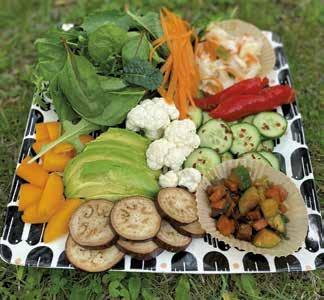
A fun alternative to popcorn is popped whole grains like sorghum, amaranth and quinoa. The hard, inedible kernels have a slightly nutty flavor when cooked and provide magnesium, potassium, iron, and vitamins B and E. There’s no need to cook ancient grains in fat, as they cook easier in a dry pan and will clump less when stored. Use them as a crunchy salad topper or mix in seasoning and additional ingredients to turn into a tasty sweet or savory snack.
1. Heat a medium-high deep pan until almost smoking.
will vote for a new name, from a selection submitted this spring by Vermont youth.
Rebecca Rupp, chair of the committee and writer and homeschooling mother of three grown sons, shared a few of her favorites from the 2020-21 book list.
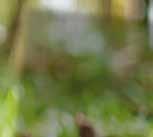
• Caitlin Doughty’s Will My Cat Eat My Eyeballs? Big Questions From Tiny Mortals About Death is a nonfiction book in which mortician Doughty answers kids’ questions about death. In addition to some captivating science, writes Rupp, “Readers get the scoop on giving Grandma a Viking funeral and find out what happens if you swallow a bag of popcorn before being cremated.”
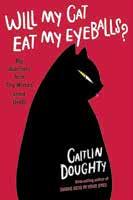
To cut down on prep time, divide food into containers based on the following categories: savory, sweet, grains, spreadables/ dippables and snacks. Seggelink suggests “filling half of your plate with fruits and veggies in order to show how much you enjoy eating them. Your child will follow your lead!”
FAMILY-STYLE PICNIC
Choose a few options from each category
Savory Container
Whether you sprawl out on a sandy beach or your back porch, summer is the season to sink into a good book. Sandy Scott, co-owner of Hardwick’s Galaxy Bookshop, shared a few suggestions.

• Christine McDonnell’s newest picture book, When the Babies Came to Stay, illustrated by Jeanette Bradley, tells the story of four orphaned babies who are left on an island. Taken in by the town librarian and raised by the whole community, this read-aloud is a warm and joyful story. McDonnell is a part-time resident of the Northeast Kingdom. (Ages 2-5)
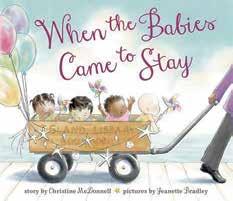
• Scott calls Prairie Lotus, by Linda Sue Park, a “fresh take on books in the vein of Little House on the Prairie.”

New settlers in the Dakota Territories in the 1880s, Hanna — who is half Chinese — and her father struggle to start a business after the death of Hanna’s mother. Through determination and friendship, Hanna makes a home for herself and her father. (Ages 10-12)
• When the Stars are Scattered is jointly
authored by Victoria Jamieson — the award-winning author of Roller Girl — and Omar Mohamed, the founder of the nonprofit Refugee Strong, with illustrations by Iman Geddy. This middle-grades graphic novel features
Omar, an orphan who grew up in a Somali refugee camp while caring for his nonverbal younger brother. Scott notes that Jamieson and Mohamed depict the challenges of refugee life through an honest and empathetic lens. (Ages 9-12)
• Inspired by Polish folktales, Don’t Call the Wolf, by Aleksandra Ross, is an engrossing young adult fantasy populated by dragons, shapeshifters and killers. Ren — part girl and part lynx — pairs up with Lukasz, a dragon slayer on a quest to rescue his brother. The two are caught up in a battle between monsters and humans. (Ages 13 and up)

Every spring since 1957, Vermont kids in grades four through eight have voted for their favorite pick for the Dorothy Canfield Fisher Book Award — from a list chosen by a committee and administered by the Vermont Department of Libraries. Last year — in response to criticism that the Arlington author’s legacy was tainted by connections to the Vermont eugenics movement in the 1920s and ’30s — the award was temporarily renamed the Vermont Middle-Grade Children’s Book Award Jonathan Clark, state library consultant for children and teen services, notes that this fall students
• Set in India, Padma Venkatraman’s The Bridge Home features two young sisters who flee an abusive father. The girls create a makeshift shelter with two homeless boys under an abandoned bridge. Rupp describes the novel as “a painful, compelling and ultimately hopeful story dealing with issues of poverty, disability and grief.”
• In the sci-fi novel We’re Not From Here by Geo Rodkey, the human race abandons an uninhabitable Earth and zooms o to Planet Choom. There, people must win the approval of Choom’s inhabitants: the Zhuri, who look like giant mosquitoes. Young Lan Mifune and family are charged with proving that humans can assimilate with the alien race, so everyone can live in peace.
• Stacy McAnulty’s novel The World Ends in April stars Eleanor Dross, whose survivalist grandpa has been preparing for a pending catastrophe by stockpiling equipment and food. When Eleanor reads an online warning that an asteroid is about to collide with Earth, she starts a secret club preparing for TEOTWAWKI (the end of the world as we know it). In the age of fake news, the book o ers plenty of discussion material.
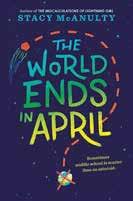
Proteins: Vermont Smoke & Cure uncured smoked pepperoni slices or meat sticks, leftover chicken or tofu, beans, roasted chickpeas, sliced hard-boiled eggs, nitratefree bacon, thinly sliced Cabot cheddar cheese, or other crumbled cheeses like feta, goat and cotija
Veggies: Spinach, chard or kale; sliced avocado; cucumber; tomato; shredded carrots; pickles; or peppers. For a hearty dose of probiotics and an immune-system boost, try Vermont-made Sunja’s White Kimchi as a topper. This mild kimchi tastes great with peanut sauce!
Spreadables/Dippables: Red pepper hummus, pesto, Greek yogurt mixed with sriracha hot sauce, salsa, guacamole or tahini
Grains: O Bread baguette, Vermont Tortilla Company corn tortillas, brown rice cakes, tortilla chips, or wholewheat or veggie wraps
Sweet Container
Fruit: Local, seasonal berries; apple slices; or melon
Treats: Dried fruit, graham crackers, mini marshmallows, or dark chocolate
Fruit dip: Mix together Green Mountain Creamery plain Greek yogurt, honey or local maple syrup, cinnamon, vanilla, and a smattering of chia seeds (a source of omega-3 fatty acids and antioxidants)
Nonfood items

Chopsticks, toothpicks, ice cube tray to dole out small portions to young children, and a bag to carry out trash.
2. Add a generous handful of grains to the hot pot, leaving room for them to bounce around as they cook.
3. Reduce heat to medium. Cover the pan and shake, shake, shake as the grains pop.
• Everything Bagel: Sesame seeds, poppy seeds, garlic, salt, onion, pepper. Make your own or buy a premade version.
• Grandma Patti-Style: Inspired by the toast my mom made me as a little girl, combine butter, sugar, cinnamon and a touch of salt.
4. Open the lid (away from your face) a few times to let the steam escape.
5. These small kernels will explode and burn quickly, so watch them carefully.
6. Once popped, swiftly transfer to a pan to cool.
Maple-Bacon: Mix in pieces of crispy bacon and local maple sugar for a sweet and salty delight!
Movie Night: Include M&M’s, pretzels, nuts, sunflower seeds, dried cranberries, bite-size cereal, raisins and chocolate chips.
Mix savory items into this vegan, gluten-free dish — perfect for a picnic main course.
INGREDIENTS
Rice noodles, or try lentil or chickpea pasta for a punch of protein
Thai-Style Peanut Sauce
1 cup creamy peanut butter
4 tablespoons tamari or soy sauce
4 tablespoons rice vinegar

4 tablespoons water
1 tablespoon maple syrup (or less, to taste)
Optional Mix-Ins



Crushed red pepper flakes
Sriracha hot sauce
Sesame seeds
Grated ginger
Crushed garlic
Fresh lime juice
1. Cook noodles according to package directions, then drain.
2. While noodles cool, whisk together peanut sauce ingredients.
3. Pour three-quarters of the sauce over the noodles. Reserve the rest.
4. Mix sauce into noodles and secure in a container with a tight lid.
5. Add extra sauce and mix-ins to individual servings before eating.
• S’mores: Use graham cereal or graham crackers, chocolate chips and mini marshmallows.
• Mexican: Mix in melted butter, chili powder, cumin, paprika, salt, lime juice and crumbled cotija cheese
Sophie carring her family’s picnic basket

A Woodbury family delivers locally sourced treats
Two years ago, Nate Doyon began baking donuts for weekend customers at Northfield’s Carrier Roasting, where he is the lead barista. When the pandemic temporarily closed the coffee shop, Doyon — like many Vermonters — was laid off. A trickle of emails began to flow in, asking whether Doyon would deliver his coveted donuts. In a matter of weeks — thanks to word of mouth and social media — he and his wife, Nina Livellara, had created a new business, Local Donut.

Twice a week, the couple makes home deliveries from Hardwick to the BarreMontpelier area. They also deliver to three farmstands: Black Dirt Farm in Stannard, Peace of Earth Farm in Albany and 1,000 Stone Farm in Brookfield. Wholesale batches go to Front Seat Coffee in Hardwick, Maple Corner Community Store in Calais and Carrier Roasting. Donuts are available by preorder at these venues.
Doyon, a Northeast Kingdom native, is a graduate of the New England Culinary Institute in Montpelier.
Livellara grew up in Danby and received a master’s degree in culinary arts from the University of Gastronomic Sciences in Piedmont, Italy.
The two were introduced four years ago by a mutual friend at City Market, Onion River Co-op in Burlington. They bought food, went back to Livellara’s house and cooked a meal together. Now, the couple lives beside Greenwood Lake in Woodbury, the parents of 2-year-old Chloe and 1-year-old Nora; Doyon and Livellara call their daughters the “donut holes” of the family.
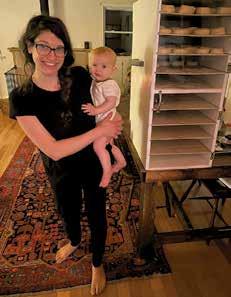
Unlike most commercial bakers, who rely on a premade mix, Doyon uses a method known as pâte fermentée — or “old dough.” Traditionally, to prevent waste, French bakeries gathered up leftover flour and dough scraps and mixed them together. Because it includes yeast, this dough ferments slightly, without progressing to a sourdough. When Doyon introduces this yeasty mixture into new dough, the flavor deepens.
Doyon’s recipe is based on one his aunt taught him when he was a boy. He still has fond childhood memories of dunking
The pair sources many ingredients from local farmstands — which requires more work and time than simply stocking up at the supermarket.
highlighting how the state’s agricultural businesses have responded to the COVID19 crisis. A story on WCAX-TV increased demand. But the couple intends to keep the operation relatively small; 200 donuts per day is their maximum capacity.
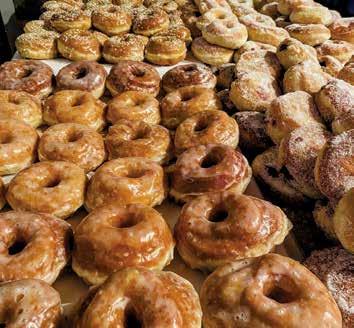
Doyon ferments the dough a day before baking, then wakes at 1 a.m. to cut and fry the donuts in a well-seasoned cast-iron skillet.

By 4 a.m., Livellara and their daughters are up, too. Livellara does the packaging, including cutting paper hearts to affix to each delivery bag. The couple separates orders by town into bins. By 8 a.m., they’re ready to hit the road. They split up, each with a daughter in tow, to cover their delivery routes. They wear gloves and masks and often drop donuts in a box or basket that customers leave out for them.
The goal of Local Donut — and the couple’s dream — is to encourage people to spend their money locally.
“I grew up in the Northeast Kingdom. I know you can get a whoopie pie for a dollar,” said Doyon. But, he adds, “that whoopie pie has all the cheapest ingredients and hydrogenated fats; there’s nothing local.”
The pandemic, Doyon said, has made him more aware that “we rely so much on capitalism to bring us all our conveniences, but it doesn’t help our local neighbor at all.” Local Donut is part of what he describes as “a huge movement” to support local farmers, artisans and cottage industries.
yeast donuts into maple syrup. “You can’t beat that,” he said.
Local Donut’s original flavor — a sugared donut with a hint of salt — was followed by a honey-sesame-cardamom variety and a jam-filled donut.
The pair sources many ingredients from local farmstands — which requires more work and time than simply stocking up at the supermarket. Doyon uses milk from Rogers Farmstead in Berlin, which he says is as creamy as half-andhalf. Black Dirt Farm supplies the eggs.
Craftsbury General Store fills their King
Arthur Flour order — about 50 pounds weekly. Doyon buys red raspberry jam in 22-pound buckets from Sidehill Farm in Brattleboro.
Vermont Agriculture Secretary Anson Tebbetts featured Local Donut in the first of his “Fireside Chats” — a video series
Going forward, Doyon and Livellara hope to diversify their offerings. This month, they’ll introduce a strawberry shortcake donut. Winter may bring more savory options.
Doyon’s father, Omer, is building a bakery attached to the couple’s kitchen. Livellara said this will enable them to keep a better balance between the business and family life — especially because they’ll be able to shut the door between the house and the bakery.
What won’t change with the new space is Local Donut’s family-centered approach. Said Doyon: “I can have one kid strapped to me and make a donut.” K Find

Tdisrupted the lives of everyone, including children. Vermont’s mental health professionals have seen higher-than-normal numbers of kids experiencing anxiety brought on by the “Stay Home, Stay Safe” order, school closures, canceled extracurricular activities, and curtailed visits with family and friends.
Thankfully, parents can play an active role in reducing their kids’ anxiety, beginning by reassuring them that they live in a very safe place.
According to the Vermont Department of Health, the number of youth under the age of 20 who have contracted COVID-19 remains exceedingly low, and no Vermont children or teens have died from the virus.

Still, if children seem unusually anxious for a prolonged period, there are things parents can do to help. Dr. Lewis First, chief of pediatrics at the University of Vermont Children’s Hospital, shares his expert advice for managing anxiety in kids.

KIDS VT: What is anxiety?
DR. LEWIS FIRST: Anxiety is a normal emotion we all experience at one point or another as part of our natural fight-or-flight response. Having a little stress or anxiety about something new, different or challenging is normal and prepares us to be sharper and more alert to respond. For a child, it may be a big test or athletic competition. But anxiety can become a problem when a child faces a sudden, prolonged crisis — which makes COVID-19 the perfect scenario for causing stress and anxiety. While their stress may not indicate a classic anxiety disorder, it can reach the upper limits of what a child is emotionally able to handle.
KVT: What signs should parents watch for?

LF: Anxiety becomes a concern when a child experiences a persistence of symptoms associated with this condition. Kids may have physiological



complaints such as headaches, stomachaches or loss of appetite. Some kids become irritable or agitated. They may become restless, easily fatigued, have trouble concentrating or difficulty sleeping. Some become disruptive or even withdraw from their parents as a way to cope.
KVT: Does anxiety look different depending upon the child’s age?




LF: Kids of all ages, even babies, can show signs of stress or anxiety, which they can sense from their parents’ unease or experience when they’re around people they don’t know. Babies, toddlers and preschoolers may seem clingier, cry more, get upset easily and not want to do things that they previously enjoyed. Older schoolchildren and early adolescents may exhibit more negativity. They may complain of shortness of breath, shakiness, clamminess, a racing heart and feelings of doom, which are all classic signs of a panic attack.
KVT: When should parents be concerned about a child’s anxiety?
LF: First, parents should realize that the vast majority of children who are showing signs of stress right now are not having classic anxiety disorders. To make such a diagnosis, we need to see at least one sign of excessive anxiety occurring more days than not for at least six months, and we haven’t been dealing with COVID-19 for that long yet.
KVT: What can parents do to help?
LF: Kids tend to stress when they sense that their parents are worried. I know it’s hard right now, but parents need to remain calm and manage their own stress as best they can. This is a great opportunity for families to recognize that, even while isolated or as we slowly get out in public more often, this is a special time together. Parents should build in time to be with their child where it’s not about talking at them but really listening to them. With an
older child or teenager, sometimes a parent expressing their own concerns will open the door to them feeling it’s OK to vent their own feelings. Parents can ask a child if there’s something they saw or heard about the coronavirus that worries them, then educate them about what is fact versus fiction. Parents can also reassure their children that scientists and medical professionals around the world are working every day to find new medicines and vaccines that will make this virus go away.
KVT: What can kids do themselves?
LF: Children can be made to feel like they’re part of the solution by practicing physical distancing, good handwashing hygiene and staying home when necessary. Parents should focus on all the positive things their kids are doing. Limit children’s exposure to the news or, with an older child, watch it together as a family so that you can discuss what’s going on. One of the most important things you can do to reduce anxiety is create predictability. Uncertainty breeds anxiety and fear, so parents should create a schedule that is predictable yet flexible and includes plenty of group playtime. Communicate with family, friends, teachers and coaches by phone or videoconference. And parents should not loosen the rules too much on healthy behaviors such as consistent bedtimes, good diet and daily exercise.
KVT: What if kids are still struggling with daily anxiety?
LF: If children just aren’t sleeping well most or all nights, are anxious most of the time, or continue to show the signs and symptoms we’ve discussed, then it’s time to talk to a health care professional. They can recommend treatments such as cognitive-behavioral therapy and even medication. A counselor or therapist can be very helpful in teaching a child coping mechanisms such as taking slow, deep breaths; counting backward from 100; and having a safe space to go to in their minds and/or in their homes. Increased anxiety in adults can lead to physical or emotional abuse, so parents need to manage their own stress levels, too. K
Do you know a local kid (age 17 or under) who's recently done something amazing? Won a spelling bee? Invented something?
Written an opera? Raised a bunch of money for a great cause?
Tell us more! He or she could be featured as One to Watch in an upcoming issue of Kids VT. Visit Kidsvt.com to tell us about this local superhero.
One of the most important things you can do to reduce anxiety is create predictability.
It's a bird, it's a plane, it's....
Parents and educators are familiar with dire warnings about the “summer slide” — the idea that much of the learning obtained in the school year is lost during the long seasonal break. Now that the “summer learning loss” could be compounded by the “COVID-19 learning loss,” it’s time to consider whether we should be worried and what we can do to engage kids in learning this summer.
The findings of the research on summer learning loss are confusing and sometimes contradictory. There is no universal format or timetable for assessing gains and losses over the summer. Test results claiming to accurately measure student achievement can vary widely and be misleading, depending on the structure of the test, how questions are asked, how difficulty is scaled and how they are scored, not to mention cultural bias and innumerable other factors. We really don’t know how much learning is lost during the summer, how this varies across student populations or how long it takes to “catch up.”
There is general agreement that students who do not have access to quality summer experiences or home learning resources generally suffer higher levels of academic loss. But it is not clear what interventions work best: rigorous and remedial summer school, home-based reading programs, or increased recreational opportunities.
In this current crisis, which has stretched on now for months with no clear end in sight, teachers have labored to meet the expectations of “continuity of learning”; parents have struggled to juggle roles, time and finances; and young people, with varying degrees of access, commitment and success, have adapted to the new online learning normal.
Now summer looms, a welcome respite for many from the grueling demands of the stopgap schooling measures, while also a source of anxiety for parents already worried about their children’s learning. The summer of 2020 is not likely to look like any other summer, what with summer camp and swimming pool closures, continued requirements of social distancing, and canceled vacations. What is a parent or caretaker to do?
First, it’s important to know that the testing that does attempt to measure summer learning loss is focused on easy-to-measure things like math skills.
It does not assess deep learning. And while you may choose to whip out the flash cards at the picnic table, there are more effective ways to enhance cognitive development.

1. Help your child discover their interests and passions. The worry about learning loss is about the retention of what is learned. In my book, Unschooling in Paradise I documented one of my children’s intense emergent interest in maps. He drew more than 200 of them, many from memory — maps of our town, county, state, the United States, the continents and their countries ... physical maps, political maps, you name it. His knowledge of geography, a subject not often taught in first grade, far surpassed mine. At the end of the year, he put away his map-making materials and turned his attention elsewhere.
Five years later, in public school for the first time, and without studying for it, he won a school-wide geography contest. He had retained the information learned in first grade for five years. Why? Because he cared about it. And this is a key finding from neuroscience: If learning is authentic and meaningful, and connected to their interests, young people are less likely to suffer learning loss.
2. Engage in real conversation.
Research is clear that learning happens when children have lots of opportunities to talk and listen — to converse with adults and peers. In many classrooms, talk between students is limited to activities like two minutes of carefully monitored “accountable talk” (this is “educationese” for teaching kids how to engage in academic conversations).
Teacher-student dialogue in conventional classrooms is often one-directional: questions and prompts, behavioral reinforcement, conflict management, abbreviated feedback, and praise.
In the increased parent-child time that has come with COVID-19, there are many opportunities to engage in deep conversation. Children are full of questions about what is happening in the world. You may not have all the answers — none of us does — but you can listen carefully to what they are thinking and feeling and consider together where the answers might lie. If we are going to be effective in this new teaching role, we need to pay close attention to how children’s minds work: Given a math problem, what
kind of thinking do they use to solve it?
How do they explain the phenomena they see in the world? Good open-ended questions are a key to sparking meaningful conversation.
If a child asks you where the sun goes in the evening, instead of providing a scientific explanation, ask, “Where do you think it goes?” Their explanations may surprise and delight you, and open up opportunities for shared inquiry.
When our family unschooled, some of our richest conversations were about books. My four boys had unlimited reading time (and much of it was conducted while sitting high up on a tree branch). There are lots of ways to talk about books: making connections from your own life to characters and events, speculating about what might happen as the plot unfolds, asking what they like and don’t like about a character, describing illustrations together using “art words” (about color, form, texture, etc.). Encouraging lots of reading during the summer is a surefire way to keep your child engaged in literacy.
I recently took a botanical drawing class and rediscovered the immense power of careful observation. In our hurried lives, we see, but we do not really see. Look, with your child, at the structure of wild things like the plants and animals and insects that inhabit your life space. When we unschooled, I once watched my 6-year-old observe a grasshopper for three days, trying to figure out how its
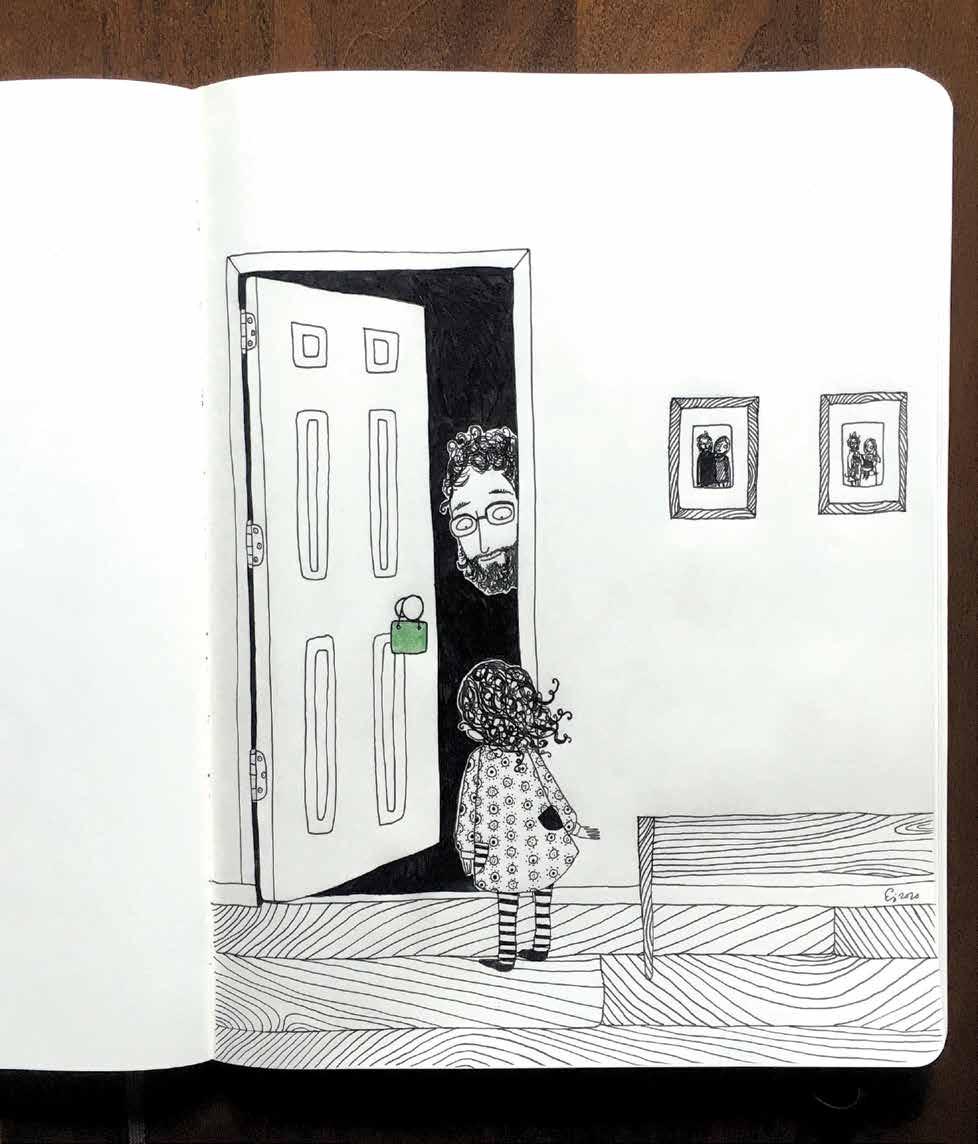
After 11 weeks, the isolation and social distancing of COVID-19 still do not feel normal, but our family has gotten used to it. We have created our own weekly routine, involving trips to the woods and Zoom classes. As before the pandemic, I work every morning at home while my husband spends time with our 3-year-old daughter. From 10 a.m. to 6 p.m., I am with our daughter, while my husband works in his home office. A cardboard sign hangs from the knob of his door.
We have painted one side green and the other side red. Green means “Knock before entering,” and red means “Do not disturb.” Every once in a while, it actually works.
jaws worked, a study that encompassed simply looking, then drawing, then book research and, finally, an experiment in which he marked the creatures with a laundry pen, then investigated the distance they traveled from the front porch. As they say in the science world, “the results were inconclusive” — but it did give us opportunities to discuss such things as range and habitat. Focusing attention on an object in the world is the basis of genuine science, a skill that will long outlast what is learned from a fill-in-the-blank worksheet.
Summertime in Vermont overflows with promising learning possibilities. Every moment brings opportunities to observe, to dialogue, to speculate, to experiment. If your children are encouraged to stretch their imaginations, develop their wonder, choose their own books and engage in self-directed exploration over the summer, it’s possible they will not experience the summer slide we have come to expect. K
Kathleen Kesson is professor emerita of teaching, learning and leadership at Long Island University-Brooklyn. She is the former director of teacher education at Goddard College in Vermont and was the founding director of the John Dewey Project on Progressive Education at the University of Vermont, a research and policy organization. She currently lives in Barre and serves on the boards of the Community Engagement Lab and the Institute for Social Ecology, and as a founding member of Vermont Learning for the Future.
A few days ago, I asked my husband what working from home has made him realize about our family life.
His answer: “Creating structure for a toddler is challenging. I now see every day what you as a mom are doing to build structure in her life: You create a schedule; you are conscious of when exactly she needs to nap, when to have lunch, when to leave the woods to get home at a certain time. I am more aware of how important that is now, and I realize that I haven’t had to figure out how to do that myself. I think I now have even more respect for stay-at-home parents because creating that structure is so challenging. It also changes constantly as the child grows. So, once you figure out something that works, there’s no guarantee that it works the next month. Before, I wasn’t aware of the impact of this constant problem solving on you. Now I am. And I try to help when I can.” K

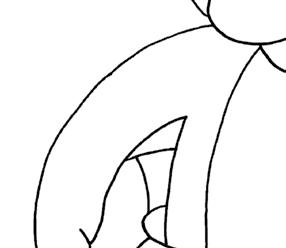

Three winners will each receive an annual family membership to the Fairbanks Museum & Planetarium. Send Kids VT your work of art by June 22. Be sure to include the info at right with your submission. Winners will be chosen in the following categories: (1) ages 5 and younger, (2) ages 6 to 8 and (3) ages 9 to 12. Winners will be named in the July issue of Kids VT. Send your high-resolution scans to art@kidsvt.com or mail a copy to Kids VT P.O. Box 1184, Burlington, VT 05402.


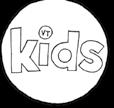
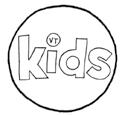
To enter, submit information using the online form at kidsvt.com/birthday-club.
Just give us your contact info, your children’s names and birth dates, and a photo, and they’re automatically enrolled.
HENRY lives in Fairfax and turns 9 on June 3. He’s a very social boy who loves to make arts and crafts. Henry enjoys being creative at his school’s maker space, creating Lego robots and using the 3D printer. His favorite sport is swimming.
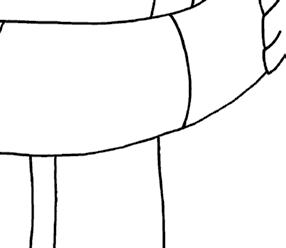
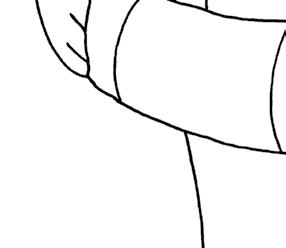
Skunks of all colors and stripes welcomed in the warm weather this month. Aksel, 4, adorned his creature with a rainbow and a gold-tipped tail.
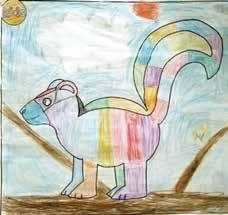
Six-year-old Josi created a deep blue background around her brown skunk, with two skinny rainbows classing up her critter’s tail. Eight-yearold Henry’s skunk balanced a miniature mountain range on its emerald back. Have fun in the summer sun, kids, and send us your awesome artwork again in June.



“LAURA THE SKUNK”
Laura Wilkins, 3, Fairfield
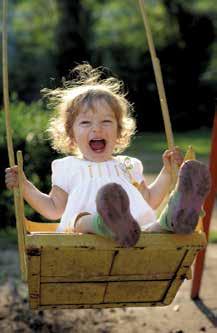
“HAPPY SQUIRREL”
Molly Carpenter, 9, Warren
“SKUNKIE”
Oliver Tonn, 7, Winooski
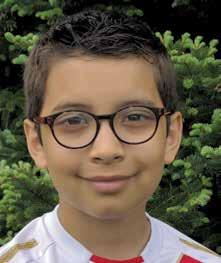
“SUPER CHIP”
Levon McCuen, 7, Hubbardton
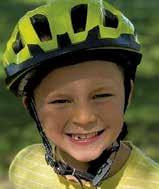
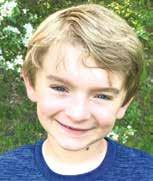
Henry, Riley and Elijah each win a special prize!
RILEY lives in Lyndonville and turns 7 on June 10. He is a first grader at Lyndon Town School. His favorite subjects are science and art. He loves to read books, go on hikes, and play baseball and card games. He has a sweet and goofy personality, especially when it comes to his dog and two cats.
ELIJAH lives in South Burlington and turns 8 on June 11. He is a fun, active, sports-loving boy! He likes gaming, mountain biking, skiing and walking his dog, Sammy. His favorite athletes are Derek Jeter and Michael Jordan.
Find
The winners of annual family memberships to the Fairbanks Museum & Planetarium are…



“SHERMAN THE SKUNK”
Amelia Stacey, 8, Berlin
“THE RAINBOW SKUNK”
Lucy Wilkins, 6, Fairfield

“SCAREDY SKUNK”
Sophie Felix, 5, Burlington
“GREEN TAIL”
Will Swisher, 5, Jericho
“GIANT SQUIRREL”
Evelyn Huard, 8, Craftsbury


“RUDOLF THE RAINBOW SKUNK”
Willem Tonn, 3, Winooski
“MAGIC CHIPMUNK”
Sarah Swartzbough, 6, Essex
TOP TITLES
“CHIPMUNKS DON’T WEAR CLOTHES”
Neoma Young, 3, Westfield
“SQUIRREL-Y SQUID-Y”
Wylie Shepard, 5, Starksboro
“THE RAINBOW RAIN CHIPMUNK”
Eliza Jane Bunten, 8, Hardwick
Coronavirus Word Search
BY HELENA HOVANECCoronavirus Word Search
Change each letter to the one that comes immediately BEFORE it in the alphabet to find a riddle and its answer. Here’s a copy of the alphabet to guide you:
Look up, down and diagonally to find every word on the list. Circle each one as you find it.
Look up, down and diagonally to find every word on the list. Circle each one as you find it.
GBYVMZZAQLBPBIH ZCUIZNJIZVBAXRT
SOLRNRJIBIXCSKR
HRNTTSTKVLAACXV EOXULRDJAALXVKL LNRAQUARANTINEZ
TAILNBGKWSNMZEO
EVTTUESXCYVSQMO RIMHANDWASHINGM
WRBTRPZDSXNXFYG
ZUQTELEHEALTHZK
BSIKVWRRUMASKVT
QAYNZEJUCCDAISO
CANTIBODIESQNEL
PVDISTANCINGEIV
CoronavirusHandwashingQuarantineAntibodies
DistancingtelehealthMaskShelter ZoomVirtual
ABCDEFGHIJKLMNOPQRSTUVWXYZ
Feeling disappointed about the things you can’t do this summer? Here are a few ways you can turn that frown upside down — and learn about your community, your state and your country in the process.
For the last two years, Kids VT has been helping Vermont youth learn about civics and news literacy through the Good Citizen Challenge. This summer, we’ve adapted the Challenge to reflect our current reality.
Each month, we’ll give you activities you can do while staying physically distant and following public health guidelines. We’ll focus on free and low-cost things you can do at home or in your own communities.
You don’t have to register on a website or keep track of points. When you do an activity, please submit the evidence to us using the form at goodcitizenvt.com, or simply email it to goodcitizen@kidsvt.com. For each activity you complete, you’ll be entered into a monthly drawing for a gift card to a locally owned business and other prizes.
Read on for a list of 10 activities, including comments from students who completed some of them during previous Challenges.
BY DAVID L. HOYT & JEFF KNUREK By David L. Hoyt and Jeff KnurekThe letters of these crazy words are all mixed up. To play the game, put them back into the right order so that they make real words you can find in your dictionary. Write the letters of each real word under each crazy word, but only one letter to a square.
The letters of these crazy words are all mixed up. To play the game, put them back into the right order so that they make real words you can find in your dictionary. Write the letters of each real word under each crazy word, but only one letter to a square.
The letters of these crazy words are all mixed up. To play the game, put them back into the right order so that they make real words you can find in your dictionary. Write the letters of each real word under each crazy word, but only one letter to a square.
Read an issue of your local newspaper. What catches your eye, and why? Can you find the page that lists who works for the paper and how to contact them? Can you find out what communities it serves and who owns it? Tell us!
From a previous Challenge:
“I read the Bridge which is based in Montpelier. I saw ads and I recognized a few businesses like Clar Construction. I would like to learn about new stores, and I want more sports in newspapers. There was a star chart. There was a whole section about our schools!”
LACHLAN, MONTPELIER
Visit a monument or memorial in your town. Tell us who it memorializes, and why. If you see garbage on the ground, pick it up.
From a previous Challenge:
“Our team visited a memorial that honored our town soldiers. It was put there to show all the people that served our country and for our freedom. Some of the people that were on the memorial are my friend’s dad, my neighbor’s son and my grandfather.”
©2020
©2020 Tribune Content Agency, LLC All Rights Reserved.
“I read the Times Argus I learned that highschool cross-country runner Ava Thurston has a ritual of eating a peanut butter sandwich an hour before she runs. In the New England Championships she was 5th place. The most interesting part was the articles about Veterans Day. I would like more Sudoku, because I really like Sudoku! What catches my eye is how organized the paper is.”
Now you’re ready to solve today’s Jumble For Kids. Study the picture for a hint. Play around with the letters in the circles. You’ll find you can put them in order so that they make your funny answer.
You are now ready to solve this month’s Jumble For Kids. Study the picture for a hint.
Now you’re ready to solve today’s Jumble For Kids. Study the picture for a hint. Play around with the letters in the circles. You’ll find you can put them in order so that they make your funny answer.
Print your answer here:
PHOEBE, MONTPELIER
“We visited the Civil War and the World War I and II memorials in Cambridge and Je ersonville. We noticed that the memorials were in the middle of each village center. We recognized lots of last names that are also names of local roads or businesses. We noted it is important to recognize the sacrifices that these soldiers made for their country.”
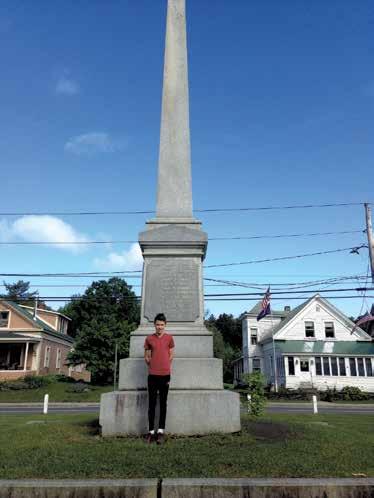
Print the answer here: A
Print the answer here: A
Then play around with the letters in the circles. You’ll find you can put them in order so that they make your funny answer. Jumbles: Answer: BED DECK TANK CROW
Jumbles: Answer: BED DECK TANK CROW What starts to work after it’s fired? — A ROCKET
What starts to work after it’s fired? — A ROCKET
“The things that caught my eye were comics, with the most interesting part being the placement of them — why are they not the first thing? And I would like to see many more kinds of funnies. I wish I could read stories about the people who write the comics.”
Start the Venture Vermont Outdoor Challenge. This creative list of projects, compiled by Vermont State Parks, inspired the Good Citizen Challenge. It will keep you busy all summer long doing things like walking your dog (5 points), building a fire using only one match (10 points), sleeping under the stars without a tent (10 points), and growing veggies and donating them to your local food shelf (15 points). Keep track of your activities and submit evidence that you completed them to win a free day-entry pass to all Vermont State Parks for the remainder of 2020 and all of 2021. Get started at vtstateparks.com/venture-vermont.html, and tell us about your first activity!
Watch Ethan 2018 , a short film about Ethan Sonneborn, the youngest person to run for governor of Vermont. Ethan was interested in politics, but running for office isn’t the only way to get involved and make a difference in your community. Tell us about how you’re involved in your community. Find the film at vimeo.com/411054369.
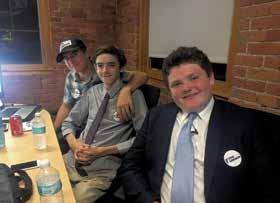
From a previous Challenge:
“I searched for books about Earth Day. The first websites that popped up were large bookstores like Barnes and Noble and Amazon. Then, I saw YouTube video pages and ads. I had to click to the second page to actually find some blogs about Earth Day books with descriptions and pictures.”


Listen to the “A(nother) Brief History of Vermont Road Names” episode of Vermont Public Radio’s podcast “Brave Little State.” It aired on September 6, 2019. Tell us which road name you liked best, and why.
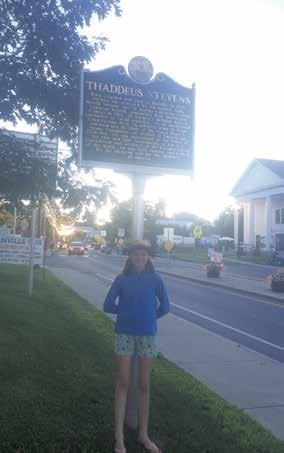
“My favorite road name was Hi-Lo Biddy Road. I liked this one best partly because no one really knows how it got named. It's also in my town!”
JUDE,
Listen to a podcast. Learn more about history, government, news literacy and current events by listening to podcasts. This is a perfect activity for a rainy day. You may also be able to listen to them in your car.
•
•
•
From a previous Challenge:
“I helped run the microphones at Town Meeting for many years. I’ve participated in a variety of homeschool groups throughout the community and am a member of the Fairbanks Museum STEM Lab team. I go to some Select Board and School Board meetings and volunteer at the Craftsbury Outdoor Center for trail building and races.”
Watch a two-minute video about how to find better information online by practicing “click restraint.” When searching for information online, it’s important to remember that search engines like Google don’t always deliver the most accurate and helpful information first. This video, from the Civic Online Reasoning curriculum developed by the Stanford History Education Group, explains how to find trusted and reliable information. After you’ve watched the video, try searching for a topic using Google. Describe in your own words what you’ve learned from this exercise. Find the video at cor.stanford.edu/videos/ better-info-click-restraint
Read the The Hate U Give by Angie Thomas, the Vermont Humanities’ Vermont Reads book for 2020. This young adult novel centers on a teen girl who witnesses police violence, and how she reacts. In a statement on the Vermont Humanities website, executive director Christopher Kaufman Ilstrup writes: “We know that The Hate U Give is likely to provoke passionate conversations in Vermont. In some cases those conversations will be di cult or challenging. We hope that readers will learn, grow, speak up, speak out, make mistakes, and learn some more. And we hope that they will feel empathy and compassion for the many di erent characters they will encounter in Angie Thomas’ book.”

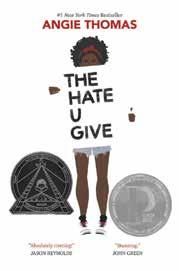
From a previous Challenge:
“I'm happy Starr spoke out against police brutality. As an activist against racism, I believe more people should be like Starr and speak out.”
Explore Vermont history by visiting some of the sites listed on the Vermont Historical Society website at vermonthistory.org/ vermont-history-outside. This page lists dozens of outdoor sites you can visit to learn more about our state, including art strolls, history hikes, roadside markers and drives along scenic byways. Thanks to Vermont Historical Society museum educator and manager Victoria Hughes for compiling it!
From a previous challenge:
Special thanks to Dan and Jenna Sonneborn and the Evslin Family Foundation for underwriting the app that powers this year’s Challenge, developed by Burlington-based GameTheory.
Powered by: With support from:



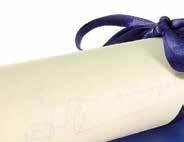



It's such a hoot to cover your snoot with an owl safety mask. And it's twice as much fun with two! So let's prowl through these owls to find two masks that are identical. When you cover up your jowls With a couple of twin owls, You can howl, You can scowl — Since a mask is not a cowl. You can yelp, And you can yowl. If you want to, even growl. Wash your hands and use a towel, After taking off your owl!
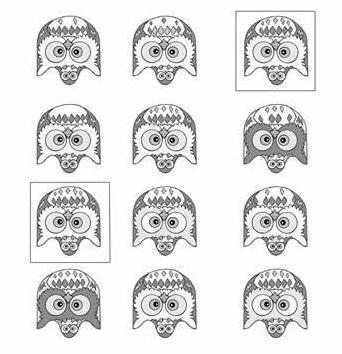
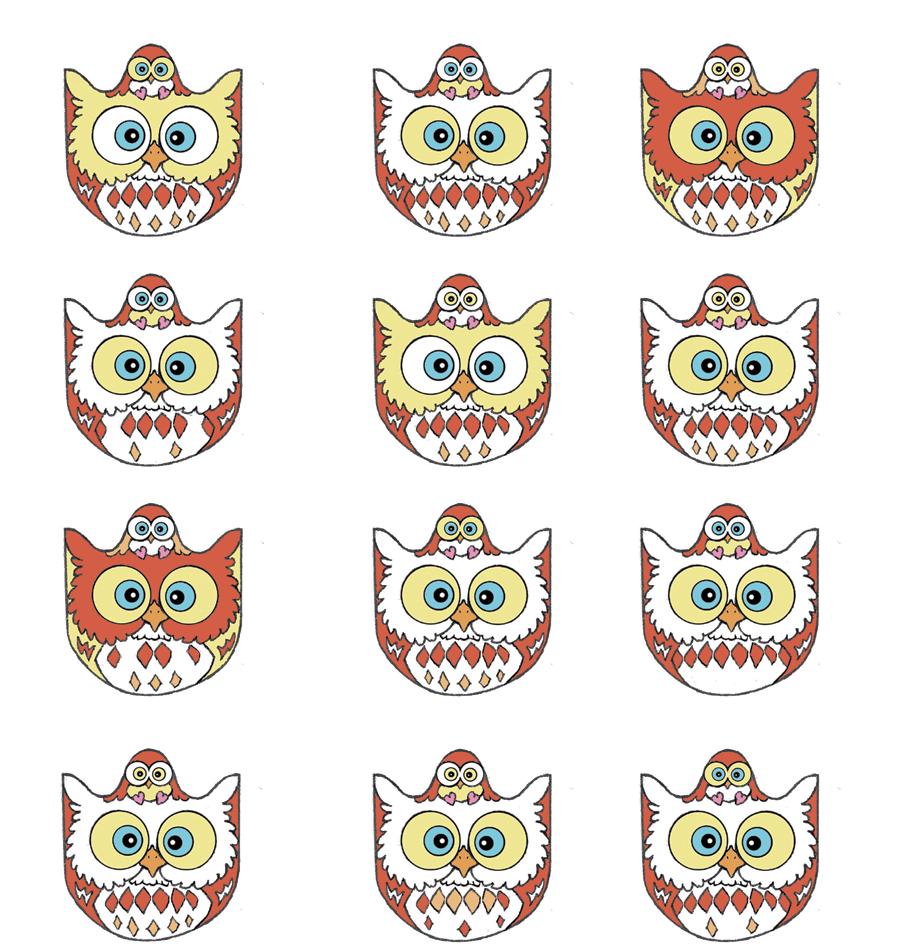
In mid-April, my friend and I left the parking lot of Montpelier’s Main Street Middle School in our separate cars with a plan. We had signs and music to surprise our friends — twin sisters — on their 18th birthday. We drove onto their street and rolled down our windows, blasting music and letting the pouring rain fall into our cars. We stuck our heads out of our cars and yelled, “Happy birthday!” as our friends stood on their front porch smiling. It was an odd but exciting new way to celebrate. The pandemic has forced us to find new ways to mark holidays, birthdays and, this month, graduations.
When COVID-19 first appeared in March, it felt like a dark cloud looming in the distance, not yet close enough to actually darken the sky. When schools first closed, my friends and I were excited for a few weeks of break, when we could sleep in and not worry about school. Our teachers posted assignments on Google Classroom and sent us dozens of emails a day. But we still believed we’d be going back to school. Then the announcement came. Vermont high schools would be closed for the rest of the year. My friend called to tell me the news. It was as if that dark cloud had gradually shifted and was now blocking the sun completely. My parents came into my room and asked how I was. I told them I was fine, but after the shock had worn o I realized I wasn’t. My parents reminded me it was OK not to be fine, and then everything came crashing down. I broke into tears.
The milestone my classmates and I have been working toward for the past 12 years — graduation — isn’t happening. Or at least it isn’t happening in the way we expected. Many of us have seen friends or older siblings graduate before us. We watched the seniors each spring semester hanging out in the library, playing games and forgetting about their homework, counting down the days until graduation on a large whiteboard. It was impossible not to think about what it was going to be like for us. We imagined our graduation parties, picking out outfits for graduation or prom, and figuring out, as a class, what our senior prank would be.
Of course, some of what we imagined may now be romanticized because it was taken away from us. Graduation
ceremonies are never like they are in the movies. Someone is bound to trip on the stage or stumble over a long speech while the graduates sit in their caps and gowns, baking in the sun. But we wanted those memories, imperfections and all. Now they will never even be created.
While COVID-19 has taken many things from us, it has also given us all the chance to realign our lives. It’s been
SEE P. 22 & 26 FOR PUZZLES
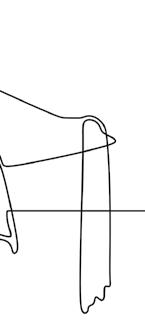
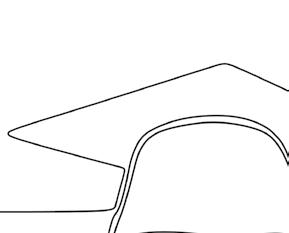
have been given more time to spend with our families before we go off into the world on our own.
When COVID-19 became widespread in the U.S., I heard an interesting comment from some adults about the class of 2020’s unique position. We were born right after the terrorist attacks of September 11 and are graduating amidst a world pandemic. We have grown up during a time of world conflict and war. We have seen corrupt politics and people in power who think they can do what they want without consequences. The security measures enacted in the aftermath of 9/11 made our childhoods di erent than any of those before us. And our easy access to the internet has created worries for our parents that never existed for their parents. Also because of the internet, everything that occurs in the world is at our fingertips. Nothing is hidden from us. The class of 2020 sees the injustice in the world and not only speaks out against it, but also takes action. We protest and speak to our political representatives about changing policies related to gun violence, civil rights, educational equity, and the environment. We struggle to find a way to make an impact and care for each other.
MASK MATCH MYSTERY:
Answer: A ROCKET
:JUMBLE BED, DECK, TANK, CROW
Sherlock Foams.
What do you get if you cross bubble batha nd a famous detective?
CODED RIDDLE:


nice to shed the senior stress and just breathe. We stopped having to worry about waking up at 6 a.m. to get to school early to talk to a teacher about a test or homework assignment. We gained the opportunity to hit the reset button on our lives, if we wished.
This spring, I’ve never felt more in touch with myself and my interests. I reread the Harry Potter series, which reminded me how much I loved to read as a kid. I have been baking constantly, from simple chocolate chip cookies to a Bavarian apple torte, and have finally determined that classic rock and pop from the ’50s through the ’80s is my favorite type of music. Through socially distanced walks, my friends and I have become more in touch with our physical well-being. Many of us have rediscovered getting outside in nature and the beauty of Vermont. We
I plan to attend the University of Vermont’s nursing school this fall and hope to one day work in the field of world health ethics. I want to be involved in conversations about universal health care, creating stronger health care systems in underdeveloped areas and making access to health care more equitable.
During the past few months, I have seen the lack of resources and personal protective equipment for health care workers and the disproportionate impact of the coronavirus on people of color and those who are incarcerated and low-income. This has only solidified my desire to participate in the world’s shift around health care.
As Mahatma Gandhi said, we must be the change we wish to see in the world. I am ready to accept that responsibility. K
Christianna Cecere is a student at Montpelier High School.
WORD FUN:
A high school senior reflects on what COVID-19 has taken away — and given
We were born right after the terrorist attacks of September 11 and are graduating amidst a world pandemic.










